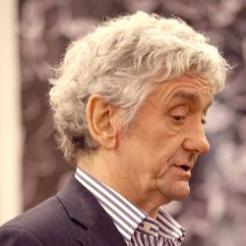Crime Reduction Initiatives and Sova have merged, combining Sova's expertise in volunteer management with CRI's financial backing and business acumen, says CRI's chief executive.
CRI was approached by Sova in May and the two organisations began merger talks in August. In a joint statement on Tuesday (27 November) the charities advised that a merger was instated with immediate effect. Both brand identities are to remain, with Sova becoming a subsidiary of CRI. Tupe arrangements therefore are not being put in place.
With an income of £80m in its latest accounts to 31 March 2012, CRI employs 1,698 staff. While Sova, with an income of £7.8m to 31 March 2011 relies heavily on volunteers with 450 'active' volunteers and a total of 1,000 on its register. However the latter charity has slowly shed 60 staff since March 2011, and will be taking 125 employees into the merger.
David Royce, CRI chief executive (pictured), said the redundancies at Sova were due to a "bad year" for the charity and a further spokesman for CRI said there were "no planned redundancies" as a consequence of the merger. He added, however that, "We will look at the whole structure of the two organisations and make whatever changes make sense from that point of view, but we can't preempt things. We've only just started to look at the structure and how it will look in the future."
Governance arrangements however have been set. Two boards will remain, but Sova's now comprises just three trustees who are also members of the CRI board of nine trustees. Royce advised that both boards will function independently.
Volunteering focus
CRI hopes to gain from Sova's vast volunteering output which saw 43,369 hours given by volunteers in 2010/11.
Royce told civilsociety.co.uk that he has had a legitimate interest in Sova and volunteering since 1978, when in his first job as a probation officer he was the liaison officer for Sova volunteers. "So I've got previous," he said. Strategically, Royce said, CRI has been moving towards a self-help agenda, and the merger cements this.
The CEO said that what CRI can bring Sova is the organisation's reach, financial stability and "a really good business platform upon which to flourish".
Royce said in particular CRI can offer expertise in impact measurement:
"Sova staff will enhance their chances of winning new business because they wil be using some of the refinements that CRI have learned over the past ten years," he said.
"Our business plan combines a pretty sophisticated approach to how we manage in terms of people, services, information and data. We live in a payment-by-results age and you need to be able to measure not only your activities but also your results, and in a way that connects to the commissioners' requirements so that you can get paid for what you are doing."
CRI was formed in 2000 from the merger of four similar organisations, of which Royce was leader. A further organisation merged into CRI in 2007. Royce has been chief executive since the CRI's formation.








